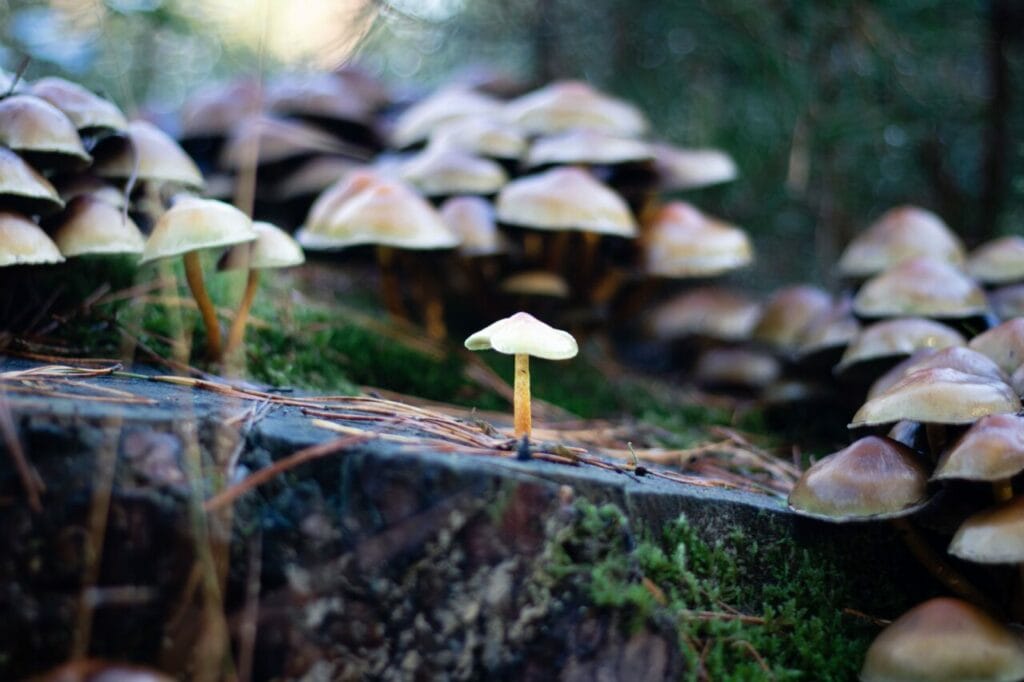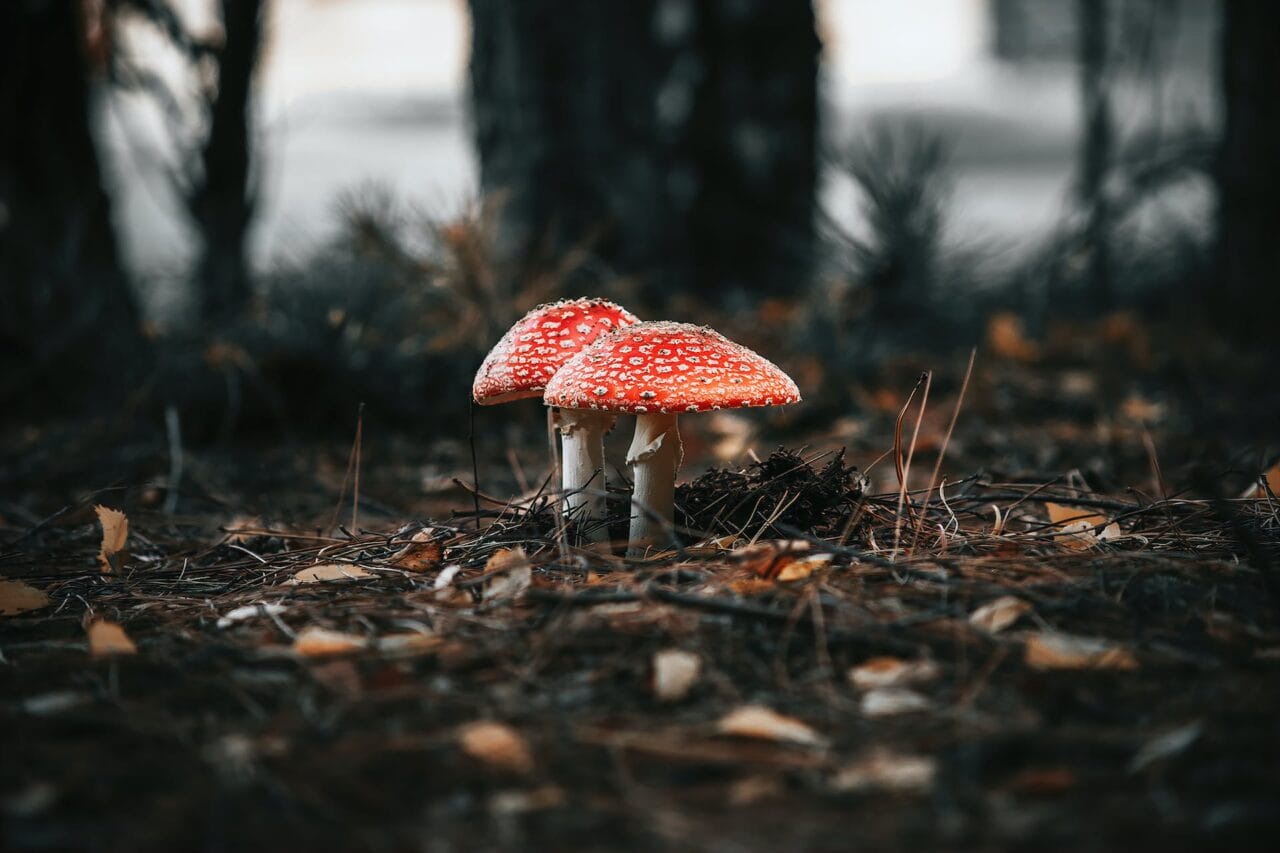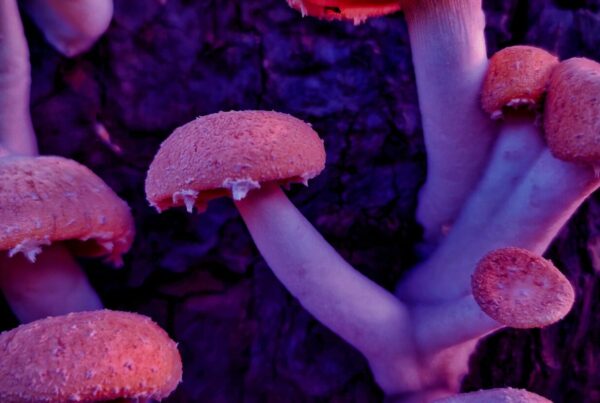There’s a growing intrigue around psilocybin, with research indicating its potential benefits for mental health conditions such as anxiety and addiction. Despite the increasing interest, acquiring psilocybin remains a challenge. The number of laboratories and shroom delivery services that supply magic mushrooms is limited, and the associated costs can be significantly high.
In this article, we delve into the evolution of psilocybin, its current status, and the potential advantages it presents to those seeking relief.
[toc]Key Points to Note:
- Producing mushrooms requires substantial effort and careful monitoring to avoid contamination during the inoculation phase.
- Psilocybin creates a psychedelic effect by interacting with different brain areas, particularly the serotonin receptors.
- Psilocybin only moderately increases the heart rate, which stabilizes soon after intake, and usually does not lead to any other negative effects.

Delivering Top-Notch Quality Magic Mushrooms
Magic mushrooms organically thrive in diverse environments such as manure-enriched pastures, leafy temperate forests, grasslands, and woodlands. Historically, people have ventured into these habitats to collect these fungi for medicinal purposes or to use them in spiritual and religious rituals.
Traditional Approach
Currently, the old-fashioned practice of foraging for mushrooms in these natural environments is less common. This shift might be attributed to the emergence of other methods like cultivation or the option to buy magic mushrooms online.
Mushrooms found in the wild tend to be less potent than those grown in labs under controlled conditions. Additionally, foraging in the wild carries the risk of accidentally picking a poisonous species.
Contemporary Approach
The process of shroom production kicks off with the intricate procedure of maturing spores. This requires a
Meticulous care and considerable time investment are required to ensure no contamination occurs during the mushroom inoculation phase. Once the mushrooms reach the harvesting stage, they are typically dried by labs or cultivators to extend their shelf life. While fresh mushrooms only remain viable for a few days, dried mushrooms can be stored for several months, even up to a year.
Manufacturers process dried mushrooms into various forms, such as microdose capsules, edibles, tinctures, and beverages. These products are then distributed throughout Canada through magic mushroom delivery services.
Capitalizing on the Benefits of Psilocybe Cubensis, or Magic Mushrooms
The primary motivation behind conducting clinical trials on mushrooms is to research their impact on mental health and mood disorders, as suggested by anecdotal evidence. A multitude of studies explores these effects, from microdosing with capsules to consuming dried mushrooms or chocolate edibles for a full mushroom trip.
Upon consumption, psilocybin is metabolized into psilocin, a compound that behaves similarly to serotonin, a critical neurotransmitter in mood regulation. Psilocin interacts with several brain areas, particularly the serotonin receptors, to initiate a psychedelic journey.
Participants in psilocybin therapy frequently report significant changes that extend beyond heightened senses and visual changes. These experiences often result in a considerable shift in self-perception and a profound change in personal perspective, characterized by deep insights.
Depression and Suicidal Thoughts
In a study published in the Journal of Psychopharmacology, researchers examined the effects of a psychedelic experience on individuals battling depression and suicidal thoughts. Most participants rated their experience with psilocybin as highly significant and highlighted its potential to profoundly impact their lives. Such high levels of satisfaction could enhance the effectiveness of therapy, considering the crucial role of patient engagement in mental health interventions.
Safety Profile
Aside from studying the effects of psilocybin on depression and anxiety, researchers also examine the safety profile of the substance. A study in JAMA Psychiatry reported that psilocybin caused a slight increase in heart rate and blood pressure two hours after consumption. However, further analysis with Holter monitoring revealed no significant increase in the risk of cardiac arrhythmias in the psilocybin group compared to the niacin group. The study also found no significant psychological distress among users.





